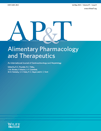APT:血清学标志物与急慢性贮袋炎风险
2013-04-15 小哲 编译 医学论坛网
近日,来自美国的Singh医生系统评价荟萃分析了回肠贮袋肛管吻合术(IPAA)后急慢性贮袋炎风险。此前有报道称血清学标志物如抗中性粒细胞胞质抗体(ANCA)和抗酿酒酵母抗体(ASCA)可能与IPAA后贮袋炎相关。研究指出,ANCA阳性患者IPAA术后慢性贮袋炎风险更高,但急性贮袋炎风险未受ANCA影响。ASCA与急慢性贮袋炎风险不相关。这些信息可能被用来告知溃疡性结肠炎(UC) 患者
近日,来自美国的Singh医生系统评价荟萃分析了回肠贮袋肛管吻合术(IPAA)后急慢性贮袋炎风险。此前有报道称血清学标志物如抗中性粒细胞胞质抗体(ANCA)和抗酿酒酵母抗体(ASCA)可能与IPAA后贮袋炎相关。研究指出,ANCA阳性患者IPAA术后慢性贮袋炎风险更高,但急性贮袋炎风险未受ANCA影响。ASCA与急慢性贮袋炎风险不相关。这些信息可能被用来告知溃疡性结肠炎(UC) 患者IPAA术后贮袋炎风险。该文发表在2013年第37卷第9期《消化药理学和治疗学》(Aliment Pharmacol Ther)杂志上。
研究者搜集了截止至2012年9月的关于成人溃疡性结肠炎ANCA和(/或)ASCA与IPAA术后急慢性贮袋炎的多个数据研究报告。
研究包括8项研究报告的184例急性贮袋炎和6项研究报告的151例慢性贮袋炎。 与ANCA阴性患者相比,ANCA阳性患者慢性贮袋炎几率高出76%[6项研究;比值比(OR):1.76;95% 置信区间(CI):1.19-2.61;P<0.01]。ASCA阳性者与慢性贮袋炎风险无关[3个研究;比值比(OR):0.89;95%置信区间(CI):0.49-1.59;P=0.68]。无论是ANCA[8项研究;比值比(OR):1.54;95%置信区间(CI):0.79-3.02;P=0.21]还是ASCA阳性[2个研究;比值比(OR):1.28;95%置信区间(CI):0.25-6.54;P=0.77]均与急性贮袋炎风险相关。
与结肠炎相关的拓展阅读:
- JPGN:粪便移植或可治疗溃疡性结肠炎
- APT:周末手术治疗溃疡性结肠炎增加并发症风险
- ALIMENT PHARM THERAP:他克莫司显示对难治性溃疡性结肠炎有短期疗效
- FDA批准Humira用于治疗某些溃疡性结肠炎患者
- NEJM:Tofacitinib治疗溃疡性结肠炎有效
- JCI:表皮生长因子可以抑制结肠炎相关癌症 更多信息请点击:有关结肠炎更多资讯

Meta-analysis: serological markers and the risk of acute and chronic pouchitis.
BACKGROUND
Serological markers such as anti-neutrophil cytoplasmic antibody (ANCA) and anti-Saccharomyces cerevisiae antibody (ASCA) may be associated with pouchitis after ileal pouch-anal anastomosis (IPAA).
AIM
To perform a systematic review with meta-analysis of studies evaluating the association of ANCA and ASCA status with risk of acute and chronic pouchitis after IPAA.
METHODS
We searched multiple databases (upto September 2012) for studies reporting ANCA and/or ASCA status along with risk of acute or chronic pouchitis after IPAA in adults with ulcerative colitis (UC). We abstracted odds ratio (OR) or raw data from the individual studies to calculate summary OR estimates with 95% CIs using random-effects model.
RESULTS
Eight studies reporting 184 cases of acute pouchitis and six studies reporting 151 cases of chronic pouchitis were included. The odds of chronic pouchitis were 76% higher in ANCA-positive patients than ANCA-negative (six studies; OR: 1.76; 95% CI: 1.19-2.61; P < 0.01). ASCA-positivity was not associated with the risk of chronic pouchitis (three studies; OR: 0.89; 95% CI: 0.49-1.59; P = 0.68). Neither ANCA (eight studies; OR: 1.54; 95% CI: 0.79-3.02; P = 0.21) nor ASCA-positivity (two studies; OR: 1.28; 95% CI: 0.25-6.54; P = 0.77) were associated with the risk of acute pouchitis.
CONCLUSIONS
The risk of chronic pouchitis after IPAA is higher in ANCA-positive patients, but the risk of acute pouchitis is unaffected by ANCA status. ASCA status was not associated with the risk of acute or chronic pouchitis. This information may be used to counsel UC patients regarding their risk of pouchitis after IPAA.
本网站所有内容来源注明为“梅斯医学”或“MedSci原创”的文字、图片和音视频资料,版权均属于梅斯医学所有。非经授权,任何媒体、网站或个人不得转载,授权转载时须注明来源为“梅斯医学”。其它来源的文章系转载文章,或“梅斯号”自媒体发布的文章,仅系出于传递更多信息之目的,本站仅负责审核内容合规,其内容不代表本站立场,本站不负责内容的准确性和版权。如果存在侵权、或不希望被转载的媒体或个人可与我们联系,我们将立即进行删除处理。
在此留言








#标志物#
65
#血清学#
75